| Учасник: | Бур** Ост** Сер******* |
| Предмет: | Англійська мова |
| Рівень: | 11 |
| Тривалість: | 45 хвилин |
| Витрачено часу: | 15 хвилин 45 секунд |
| Час початку: | 2025-03-30 20:33:50 |
| Час закінчення: | 2025-03-30 20:49:35 |
| Набрано балів: | 75.3 / 100 |


By the time she arrives, we ... our homework.

She is interested ... learning new languages.
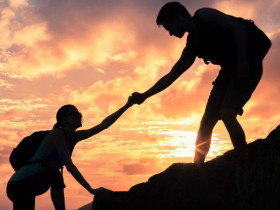
Choose all possible correct options.
He's a very _________ person, he always helps others.
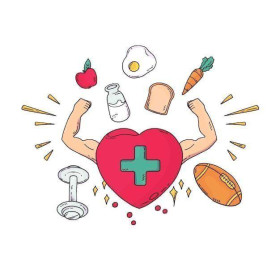
Choose the correct synonyms for the word "beneficial"
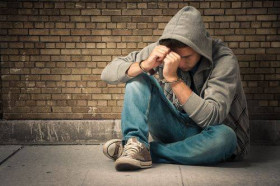
Societies have always found it difficult to
deal with the problem of young criminals. In the past young people who committed crimes were often sent to prison. Many judges believed that this was the best way to punish them. They thought that if they didn't treat these youngsters severely, they would will never change their ways. It is certainly true that if a young person robs an old person, for example, they should pay a price for this action. But the question is whether the best solution is to send them to prison, where they will meet and hang discuss out with older, more experienced criminals.Many experts now believe it is important to help young criminals to
make changes to their lives, rather than simply locking them away. They say it is better to help these young people to learn new skills. This will help them to get a job in the future and hopefully stay away from crime. Of course, someone who has had suffered their house burgled by a young criminal may not agree with this gentle approach!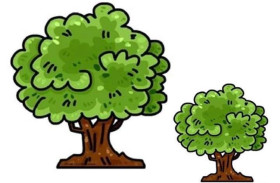
Sort the adjectives by size, from the smallest to the biggest.
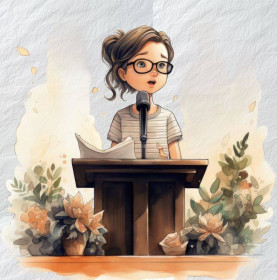
Match the words with their correct definitions.
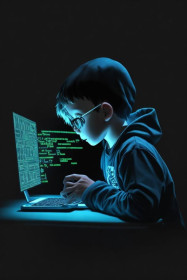
Technology has significantly transformed the landscape of education over the past few decades. Today, students have access to a wide variety of tools and resources that make learning more interactive and engaging. Digital platforms, such as online learning management systems, educational apps, and video tutorials, have become integral parts of the modern classroom.
One of the most notable advantages of technology in education is its ability to personalise learning. With digital tools, teachers can tailor lessons to meet the individual needs of each student. For example, students who are struggling with a particular topic can access additional resources, practice exercises, and receive immediate feedback. At the same time, advanced learners can work on more challenging tasks, ensuring that everyone is engaged at their level.
Moreover, technology promotes collaboration among students. Online discussion forums, group projects, and collaborative platforms allow students to share ideas, work together on assignments, and learn from each other, regardless of their physical location. This can enhance their problem-solving and communication skills, which are essential in both academic and professional settings.
However, the integration of technology in education also raises concerns. Some critics argue that excessive screen time can negatively affect students' social skills and mental health. Others worry that the reliance on digital tools might lead to a decrease in traditional learning methods, such as face-to-face interaction with teachers and peers. Additionally, not all students have equal access to technology, which could lead to a digital divide between those who have the necessary devices and those who do not.
Despite these challenges, it is clear that technology will continue to play a major role in shaping the future of education. As long as it is used responsibly and in conjunction with traditional methods, it can enhance learning outcomes and prepare students for the demands of the modern world.

Environmental conservation plays a vital role in ensuring the sustainability of our planet for future generations. As the world’s population continues to grow, the demand for resources such as food, water, and energy increases. If these resources are not managed wisely, we risk depleting them and causing long-term harm to ecosystems and biodiversity. This is why environmental conservation is crucial for sustainable development, which refers to meeting the needs of the present without compromising the ability of future generations to meet their own needs.
One key aspect of environmental conservation is the protection of natural habitats. Forests, oceans, and wetlands are essential for maintaining biodiversity, regulating climate, and providing resources for human use. Deforestation, pollution, and habitat destruction are major threats to these ecosystems. By promoting conservation efforts such as reforestation and the protection of marine life, we can help preserve these habitats and ensure that they continue to provide their vital services.
Another critical area of environmental conservation is reducing waste and promoting recycling. In many parts of the world, the excessive production and disposal of goods lead to the accumulation of waste in landfills, which pollutes the environment and contributes to climate change. Recycling helps reduce the demand for raw materials, cuts down on pollution, and saves energy. It is a simple yet effective way for individuals and communities to contribute to sustainability.
Governments, organisations, and individuals all have a role to play in environmental conservation. Governments can create policies that protect natural resources, promote green technologies, and encourage sustainable practices. Organisations can implement environmentally friendly business practices, while individuals can reduce their carbon footprint by using energy-efficient appliances, reducing waste, and supporting eco-friendly products.
In conclusion, environmental conservation is essential for achieving sustainable development. It helps protect the environment, conserve resources, and create a balanced ecosystem for present and future generations. Through collective efforts at the local, national, and global levels, we can work towards a more sustainable future for our planet.
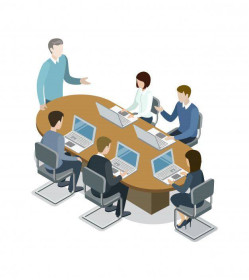
Read the text and fill in the gaps with the following words: excited, difficult, curious, achievements, enthusiastic, experience, opportunity, challenging.
Last summer, I had an amazing opportunity to work as an intern at a graphic design company. It was my first time working in such a creative environment and I was both nervous and excited . I had always been curious about design, but this was the first time I got to see how the professionals work.
The tasks were sometimes challenging difficult , especially when I had to create designs for clients with very specific requirements. However, I enjoyed the challenge and knew that it was a great learning experience . I was lucky to work with a very enthusiastic team, who helped me develop my skills and gave me lots of advice.
One of the most exciting moments of my internship was when I was asked to present some of my work to the clients. It was a huge opportunity, and I was very proud of my achievements . Even though I was nervous at first, I could tell that the clients were pleased with my designs.
At the end of the internship, I felt much more confident in my abilities and was eager to take on more difficult challenging projects in the future. The whole experience was an incredible learning experience, and it inspired me to pursue a career in design.

Fill in the gaps in the following sentences, using these words: but, although, unless, because, were, already.
We had already visited the museum when we decided to go for a coffee.
Although it was raining, we decided to go for a walk in the park.
The movie was great, but it was too long.
Sarah didn’t want to go to the party because she wasn’t feeling well.
You won't have the energy to study unless you eat healthy.
If I were you, I would try to resolve the issue with the teacher.
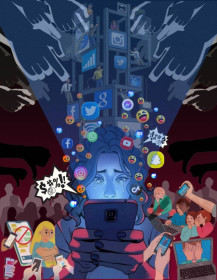
The Impact of Social Media on Communication Skills
In recent years, social media has become an integral part of everyday life. Platforms such as Facebook, Instagram, and Twitter allow people to stay connected with friends, family, and even strangers across the globe. While social media offers numerous benefits, such as the ability to easily share ideas, news, and images, there are also concerns about its effect on communication skills.
Many people argue that social media can negatively impact face-to-face communication, as it encourages more virtual interactions rather than real-life conversations. Some believe that relying on texts, tweets, and posts can make it harder for individuals to develop strong interpersonal communication skills. For instance, when people communicate online, they may not have to express emotions as clearly as they would in person. Additionally, the use of abbreviations and emojis can sometimes lead to misunderstandings or a lack of clarity.
On the other hand, social media can also be a tool for improving communication skills. It can help people practice writing, become more comfortable with expressing themselves, and connect with others who share similar interests. It is also a valuable resource for promoting important causes, sharing educational content, and even learning new skills through online discussions or videos.
Ultimately, the impact of social media on communication depends on how it is used. If used wisely, social media can enhance communication skills, but if overused or used inappropriately, it may lead to the decline of face-to-face interaction and the development of poor communication habits.

By the time we arrive, the meeting ... .

Choose synonyms for "cautious".
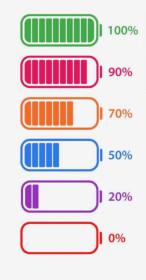
Put the following adverbs of frequency in the correct order, from the action happening the most often to the least often:
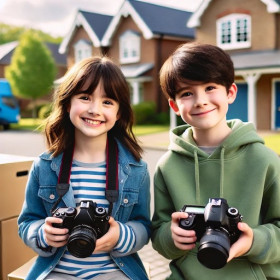
Put the sentences in the correct order to make a story.

Complete the sentences with the correct form of the word in capitals.
We should use public transport to reduce air pollution . POLLUTE
There are a lot of complaints about too much noise in the city centre. COMPLAIN
Chris has to make an important choice about which team he wants to play for. CHOOSE
Writing the first job application was quite stressful for me. STRESS

Last month I was window shopping and I saw some incredible furniture in a new trendy store. Unfortunately, you can't
pick take up a bargain in such expensive shops. If you bought anything there you would be in debt lack for ages. Instead, you should think about fixing up some old items yourself. I tried and it works! Recently I helped my neighbour clear out her garage. There was lots of any rubbish in the garage she wanted to get rid of, but because her back hurt aches she needed help. During the process, I saw an old table which she said had been was there for years. The neighbour said I could take anything anywhere I liked. And I liked the table. It was in bad shape, but I took it home. I searched the Internet trying to figure fall out how to renovate it.I quickly learned one thing: most products that are
recommended recommendation for refinishing furniture are not safe to use indoors. I had been has been warned about it before, but somehow I forgot. First, I began to feel dizzy, and then I nearly passed out by ! I finished the job in the garden. Now I have a beautiful table and there's less rubbish on the planet.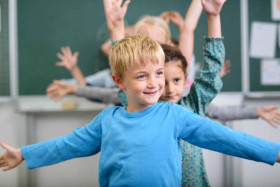
Match each word with its correct definition.

I have a lot of great memories of the house
where I grew up. Now we live in the suburbs, but when I was little, my dad got a job in the countryside and we lived in a big old house on the edge side of a village. We lived there for ten years and I used to go to the village school. We were near the sea and my friends and I often explored the beach and the caves in the cliffs. The area is famous for its beaches and white cliffs and it was the setting place for a popular TV series last year!I loved that old house. Some people think it's lonely to be in the countryside, but I
enjoyed decided being on my own sometimes. If I felt miserable crowded I could go up to my bedroom and look out of the window. I had a breathtaking view from there across the fields and to the sea. It was very relaxing and made me feel better. I was really unhappy when we moved to the town!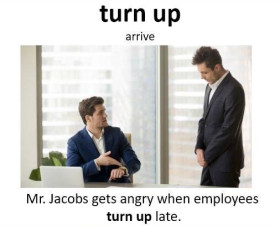
Match the phrasal verbs with correct sentences.
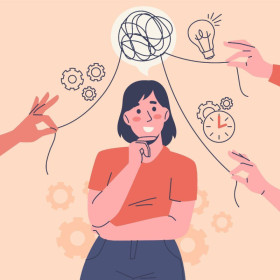
The Importance of Critical Thinking
In today’s world, critical thinking is more important than ever. It allows individuals to analyze information, evaluate different perspectives, and make informed decisions. Critical thinking is not just about knowing the right answer; it’s about asking the right questions. For instance, when reading a news article, a critical thinker will not just accept the facts presented but will also question the sources of information, the motives behind the article, and the potential biases. By doing so, they ensure that they are well-informed and able to form opinions based on a wide range of information. In educational settings, teachers encourage students to practice critical thinking through problem-solving tasks, debates, and discussions. This prepares them to face complex real-world situations with clarity and confidence.
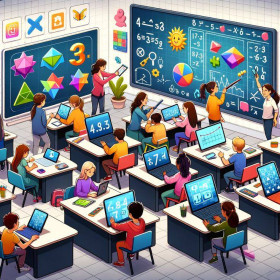
The Role of Technology in Modern Education
Technology has drastically changed the landscape of education in recent years. Digital tools like computers, tablets, and educational apps have transformed the way students learn and interact with teachers. Students now have access to vast online resources, enabling them to learn at their own pace and explore topics in depth. However, some argue that this increased reliance on technology can lead to distractions in the classroom and hinder face-to-face communication skills. Despite these concerns, many educators believe that when used appropriately, technology enhances the learning experience, making it more interactive and engaging. It allows for personalised learning, where students can receive tailored feedback and support. In the future, as technology continues to evolve, it is expected to play an even bigger role in shaping the educational system.
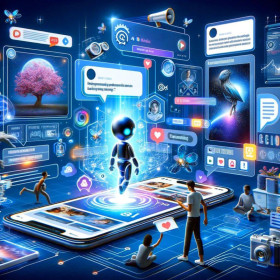
Social media platforms have become an integral part of daily life for millions of people around the world. They offer an easy way to stay connected with friends, family, and the wider community. However, there is growing concern about the impact social media is having on individuals and society as a whole.
One of the most prominent issues is the effect on mental health. Studies have shown that excessive use of social media can lead to feelings of loneliness, anxiety, and depression. This is especially true for younger generations, who may feel pressured to present a perfect version of themselves online, which is often far from reality. Furthermore, the constant comparison to others’ lives can create unrealistic expectations and contribute to low self-esteem.
Another concern is the spread of misinformation. Social media platforms can easily amplify false information, making it difficult to distinguish between what is true and what is misleading. This can have serious consequences, especially during times of crisis or election periods, when people may rely on social media for news and updates.
On the positive side, social media can serve as a tool for social change. Activists use platforms to raise awareness about important social issues, organise protests, and bring attention to causes that may not otherwise receive widespread media coverage. In this way, social media has the power to unite people around common goals and inspire action.
Overall, while social media offers many benefits, it also poses significant challenges. As its influence continues to grow, it’s important for individuals to use these platforms responsibly and critically.